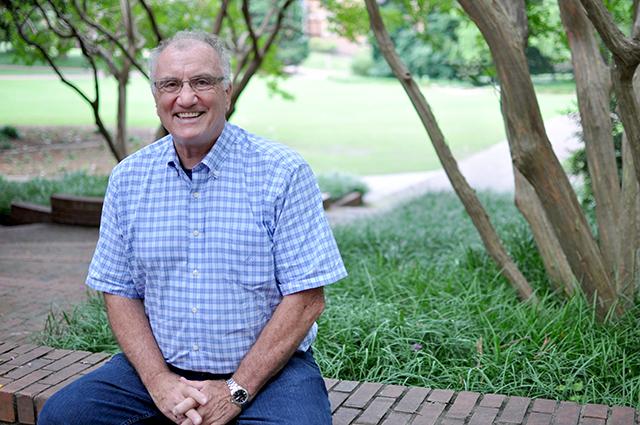Most of us have heard the phrase, “You like potato and I like potahto, you like tomato and I like tomahto,” made famous by the 1937 film Let’s Call the Whole Thing Off. Though some may spend hours arguing about which version provides the correct pronunciation, English Professor Walt Wolfram would say it all depends on which dialect you refer to.
Wolfram has studied how people talk for about 50 years, producing a number of research studies, documentaries and museum exhibits.
Most recently he co-authored Talkin’ Tar Heel: How Our Voices Tell the Story of North Carolina with English Associate Professor Jeffrey Reaser, the first textbook about linguistics that uses QR codes. UNC Press published the book in April.
“We have hours of audio and video that you can just access on your smartphone, tablet … you can experience the language firsthand while you read about it,” Wolfram said.
The audio and video content came from the more than 3,500 interviews he and colleagues conducted for causes, such as the North Carolina Language and Life Project, according to Wolfram. Wolfram started the project in 1993 to raise awareness about the relationship between identity and dialects and the importance of linguistic equity.
“I realize I have this public commitment, particularly when you are confronted with a topic about which there are a lot of misconceptions, so dialects and American society are often viewed as something as an indication of a deficit or lack of intelligence, and so one of my missions has been to sort of celebrate diversity rather than view it as an obstacle, and so that’s why we started the NC Language and Life Project,” Wolfram said.
Wolfram also just concluded a 20-year longitudinal study last year, which examined the language development of 70 African-Americans from age 6 months to 20 years. One of the findings included the “rollercoaster effect,” which explains how children lose their dialect when they first enter school, but regain it from about sixth to eighth grade as peer pressure increases, only to have the dialect decline again once they enter high school.
“Because no one has ever really followed kids for 20 years, no one has ever really talked about that kind of data that we found,” Wolfram said.
The study complements his upcoming documentary, Talking Black in America, which observes African-American English in places from Charleston, S.C., to Liberia.
Another future documentary, First Language: The Race to Save Cherokee, tells the story of the revitalization of the Cherokee language in the Western United States and the Appalachians. The film is about how the Cherokee language struggles to survive there and how they have created immersion schools so children could learn Cherokee as their first language.
Wolfram’s interest in linguistics started from a young age after he realized his talent for languages.
“My parents are immigrants,” Wolfram said. “They didn’t speak English; they spoke German, and then as you go in school, you have to figure out, well, what am I good at, and so I was good at languages.”
After failing to achieve his initial goal of becoming a missionary and translating the Bible, Wolfram said he turned to academia.
“I actually think that the identity work of dialects is much more substantial than people give it credit for,” Wolfram said. “The fact of the matter is people want to be from some place, they want to identify with some group, and so in that respect, people don’t want to talk and stigmatize. You know there are other pressures to be like people and identify with them, so I actually think that dialect and identity has strengthened over the years, despite the fact that some dialects are waning.”
Aside from providing an aid to language learning, students should take a linguistics course for humanitarian reasons, as well, according to Wolfram.
“We actually tolerate a lot of language prejudices in our society in terms of good, bad, proper, improper and so forth, and so since I see one of my missions to promote equity in language, I think it’s important for students to study language diversity,” Wolfram said.








